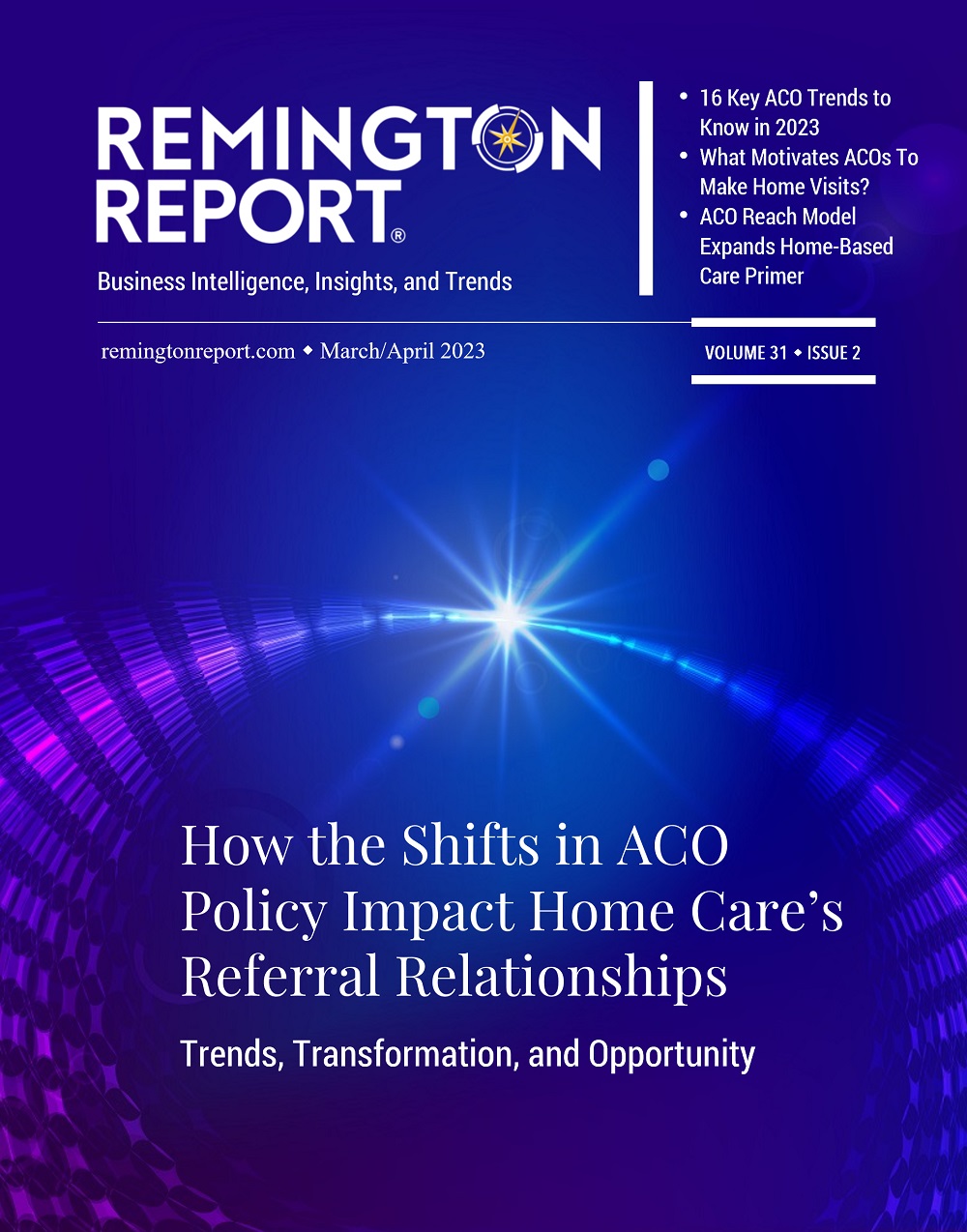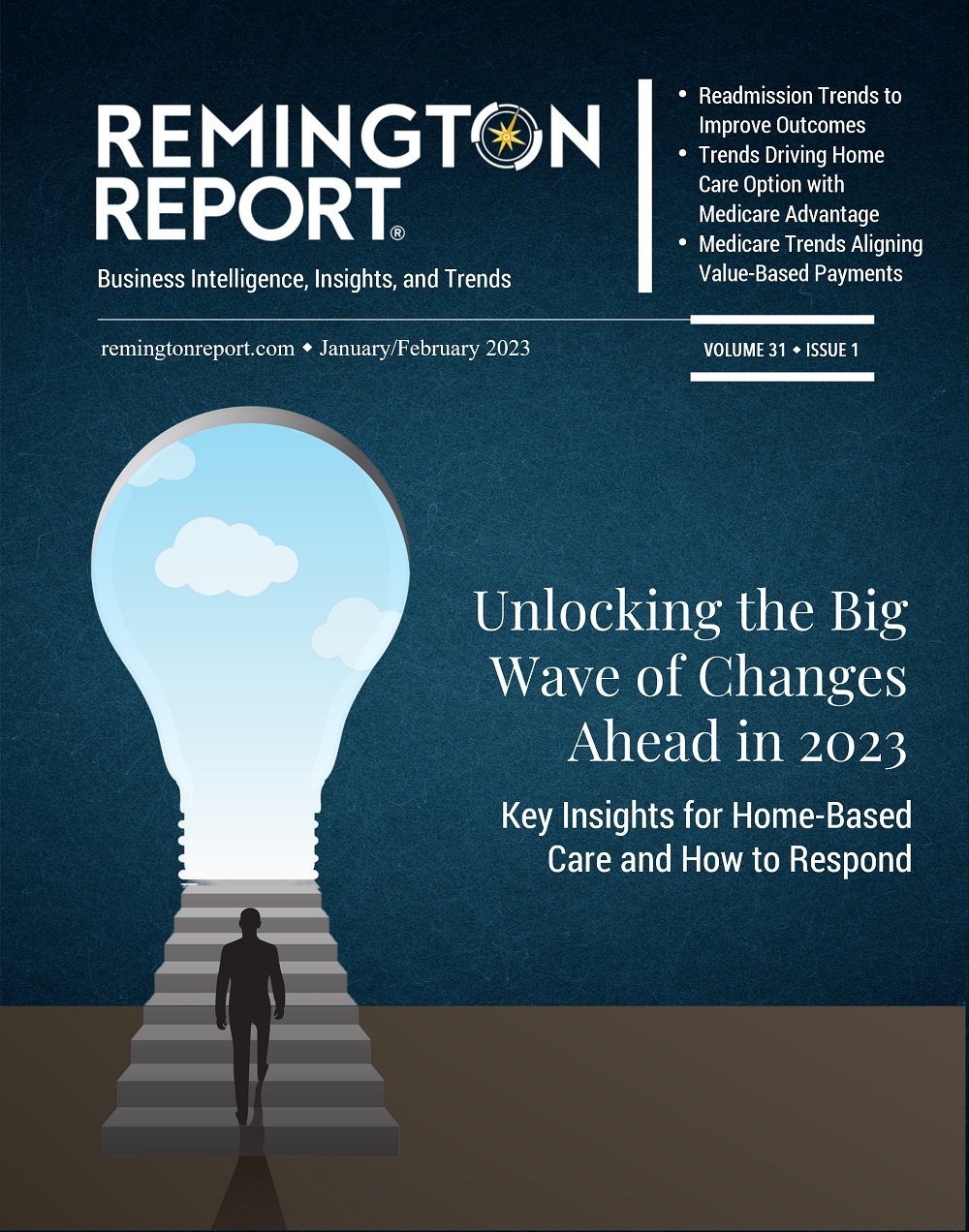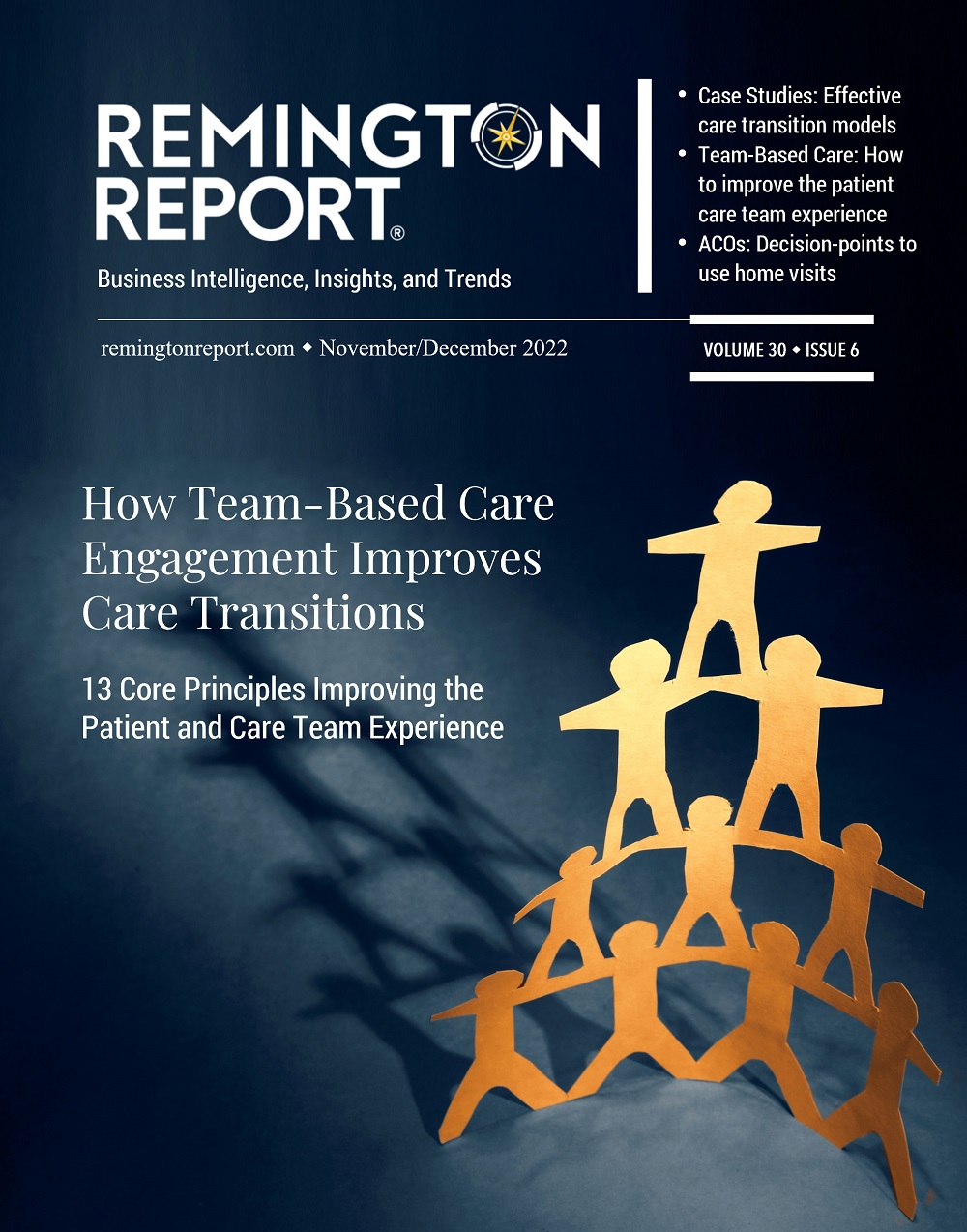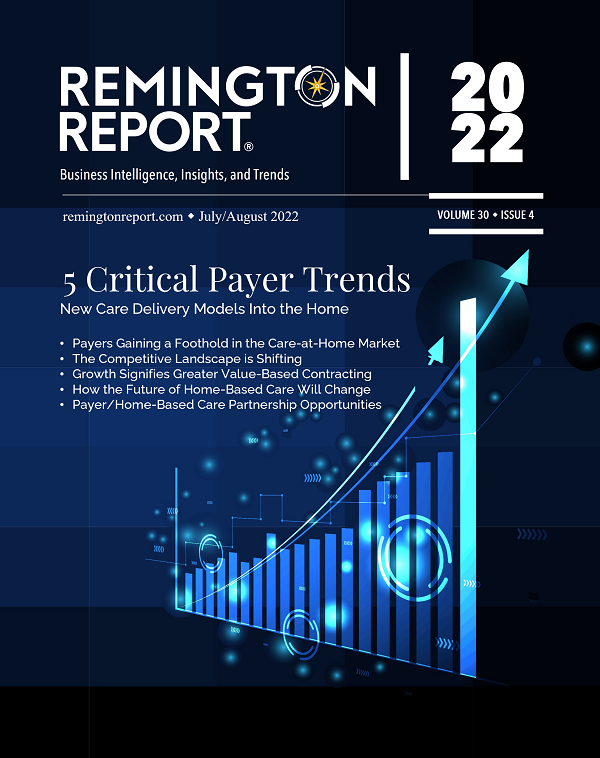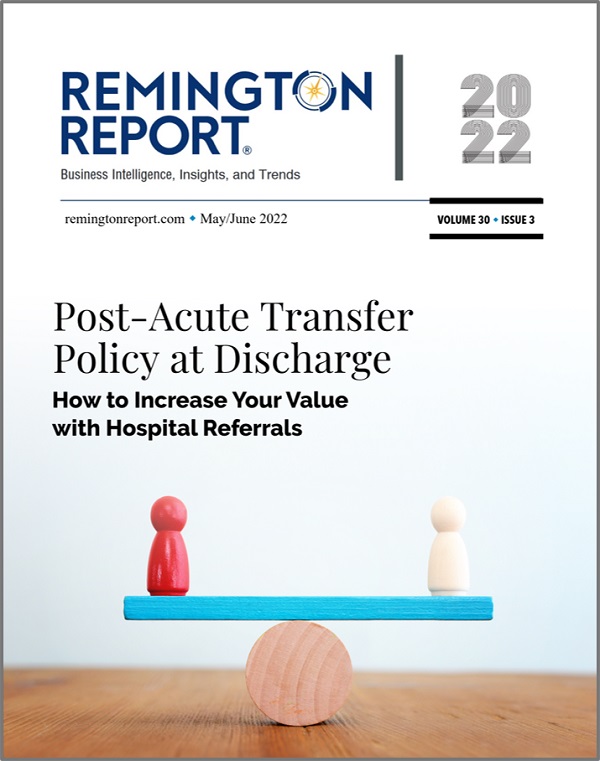INTERACTIVE FEATURES: When viewing this article on an electronic device, note that web addresses are live links. Just click the link to visit that web page.
Click for instructions for moving the PDF into Kindle, Nook, Apple iBooks, and Apple Library.
“Our healthcare system should never get to this point. However, many manufacturers are sending out notices to DMEs that they cannot fulfill their orders for things like oxygen concentrators, enteral and specialized infant formulas, portable oxygen concentrators, hospital beds, wheelchairs, and walkers. These shortages of supplies again make it more difficult to support our ongoing DME patients who also have critical needs.”
– Terry Racciato, RN PHN
The current COVID-19 pandemic presents extraordinary challenges to our health care system. As this virus continues to spread and hospitals reach capacity, we will see an increased need for home treatment for a number of health issues, including those directly related to COVID-19. As hospitals discharge patients into their homes or other residential settings to free-up resources and hospital beds, the resultant strain on the provision of DME Items and services, particularly for suppliers of home oxygen and ventilators, will significantly increase. It is critical to have a strong, well-supported and financially viable DME infrastructure to allow patients to recover at home during this crisis and beyond.
The Challenges DME Face
DME providers serve millions of Medicare and Medicaid beneficiaries in their own homes; and we expect that number to grow significantly with the spread of the COVID-19 virus. Our members supply home oxygen therapy, ventilator services, and many other necessary items and services that allow patients to be released from hospitals, nursing homes and other health care facilities to complete their recovery at home.
New York Governor Anthony Cuomo stated that the COVID-19 pandemic has stressed our health care system beyond its breaking point for a health care system that was struggling before the pandemic even began, making it impossible to cover the current COVID-19 pandemic. He stated that a fence is only as strong as its weakest link. That could not be truer than it is for DME companies. DMEs have been systematically decimated by a Medicare system that appeared determined to thin its DME providers, and well they have. Over 40 % of all DMEs have closed throughout the U.S. in the last 8 years due to the draconian reimbursement cuts imposed by the Medicare competitive bidding program, then passed on in the CURES ACT to the Medicaid programs in each state. The few remaining DMEs have cut their costs to the bone in order to survive.
Those remaining DMEs have had to cut any and all overhead to survive through this hostile reimbursement environment. Respiratory Therapists (RTs) are considered an expensive luxury, rather than a necessity for many DMEs who can no longer afford to provide uncompensated overhead for the care component in order to stay in business. Yet, respiratory therapists have become, by default the home care respiratory case manager, especially when 80 % of all the DME caseload no longer has a home health agency as a caregiver. The overwhelming emphasis on paperwork and audits to retain reimbursement has actively competed with patient care support of our patients. And that’s part of the problem. The National Supplier Clearinghouse and Medicare view DMEs as equipment suppliers, and not really caregivers. Indeed, the CMS Manual states that:
F. Respiratory Therapists
Respiratory therapists’ services are not covered under the provisions for coverage of oxygen services under the Part B DME benefit as outlined above. This benefit provides for coverage of home use of oxygen and oxygen equipment, but does not include a professional component in the delivery of such services.
(See §280.1, and the Medicare Benefit Policy Manual, Chapter 15, “Covered Medical and Other Health Services,” §110.)
For more information on respiratory therapists see pages 20-23.
The very key to a successful recovery and/or treatment, the professional component of home oxygen and oxygen equipment is a non-covered benefit.
The same is true for home mechanical ventilator (HMV) patients. There is no reimbursement for the professional component provided by the RTs. RTs have become the respiratory case managers, including the provision of emergency on-call availability.
The unsustainable low reimbursement and high auditing environment to which DMEs have been subjected, has caused a much lower inventory level than historically maintained and that patients require. Many DMEs either drop ship from a third-party distributor, or order only enough inventory for just in time shipments. With this historical shortage of supplies in the best of times, during emergencies such as the COVID-19 pandemic, patient’s served by hospitals take priority. This makes it even more difficult to keep the equipment and supplies that are necessary for DME to adequately maintain their current caseloads, and prevents DMEs from serving the 80% of all COVID-19 patients who can be effectively treated in their own homes.
Unintended Consequences of Supply Shortages
Ongoing chronic home care patients and their loved ones worry about receiving life sustaining equipment from DMEs that allow them to stay at home.
This untenable situation is no more evident than expressed in this heartbreaking statement by a parent of an 8 year old vent-dependent patient:
“Ventilator circuits and other respiratory supplies are on a major global supply crunch. The DME industry doesn’t have the purchasing power to compete with the federal government, state governments and big hospital systems to get supplies. Medicaid reimbursement rates for home ventilator patients is stunningly low, and the patient pool of home ventilator patients is served by a very small pool of suppliers due to the complexity of patient care and low reimbursement rates. As the big players compete for respiratory supplies, and the prices go up, the $712.56 monthly rate from MediCal (California’s Medicaid) doesn’t give DMEs any wiggle room in getting necessary products.
If home ventilator patients can’t get the supplies they need to live safely at home, they’ll either die at home or be forced into overcrowded hospitals, where they will pick up infections and die. We all know the hospital is the last place we want home ventilator patients to be right now. I don’t fear that the ventilators will be rationed and that someone will come to our house and take our son’s ventilator away from him. But I do fear that the system we have in place to take care of home ventilator patients is underfunded and strained during normal times, and COVID-19 will break the homecare supports that many patients need to live safely at home.
Don’t worry about our specific family. I’ve been washing and reusing sterile, disposable medical supplies, repairing things with super glue and duct tape, buying veterinary supplies, exchanging supplies with strangers on the internet, and scavenging leftover supplies from my friend’s dead children. However, it is difficult when we have oxygen tanks that need to be refilled that aren’t returned to us, because they are being diverted to facilities and emergency rooms.”
Our healthcare system should never get to this point. However, many manufacturers are sending out notices to DMEs that they cannot fulfill their orders for things like oxygen concentrators, enteral and specialized infant formulas, portable oxygen concentrators, hospital beds, wheelchairs, and walkers.
These shortages of supplies again make it more difficult to support our ongoing DME patients who also have critical needs.
DME’s and the patients we serve, deserve reimbursement rates that make it possible to meet the needs of their patients. These rates must also acknowledge and pay for the professional support provided by respiratory therapists. By incorporating a reimbursable code and fee schedule that includes the specialized professional services provided by RTs, perhaps RTs would no longer be considered an expensive luxury but an essential part of providing quality of care and quality of life.
DMEs need a less hostile reimbursement environment where it takes more staff to respond to reimbursement audits than to provide direct care to patients. We can no longer accept a penny-wise and pound-foolish system that puts paperwork over patients.
Quote: “Over 40 % of all DMEs have closed throughout the U.S. in the last 8 years due to the draconian reimbursement cuts imposed by the Medicare competitive bidding program, then passed on in the CURES ACT to the Medicaid programs in
each state.”

Terry Racciato, RN, PHN, is President, RAC & Associates, DBA SpecialCare, and President, CAMPS – The California Association of Medical Product Suppliers (CAMPS). CAMPS is a non-profit, statewide trade association representing the California HME industry.



